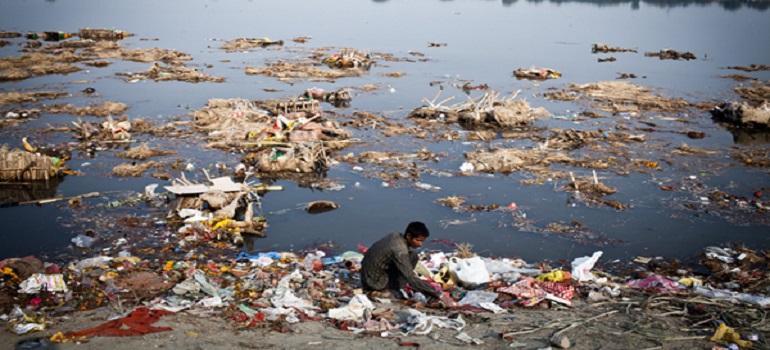Arkhangelsk hosted a Conference on waste and microplastics in the Arctic as part of the key events of Russia’s chairmanship of the Arctic Council in 2021–2023, which are organized by the Roscongress Foundation.
“The problem of microplastics is important for the entire World Ocean, but it takes on particular relevance in the Arctic. In 2019, as part of the Arctic Floating University International Scientific and Educational Expedition, a study was conducted on the content of microplastics in the Arctic Ocean. The results showed that microplastics are present even in the Barents Sea, which is far from any economic industrial centres,” said Nikolay Korchunov, Chair of the Senior Arctic Officials and Ambassador-at-Large for Arctic Cooperation of the Russian Ministry of Foreign Affairs.
Korchunov said this problem poses the greatest danger to people living in the region, including the Indigenous People of the North, whose key trade is fishing.
“Environmental protection and climate change issues in the Arctic region have not vanished from the current agenda. The Russian Ministry of Foreign Affairs is ready to assist in every possible way with establishing and developing a dialogue between Russian scientists and their foreign colleagues. In this case, this doesn’t just include member countries of the Arctic Council. We remain open to dialogue with the Council’s observer states on ways to ensure environmental security in the region. At the same time, we are developing cooperation with scientists and experts from non-Arctic states since environmental issues in the Arctic are global in nature,” he said.
In 2017 alone, the world produced some 350 million tonnes of plastics, and this figure will increase to almost 1 billion tonnes by 2050, said Yelena Zlenko, Deputy Chair of the Federation Council’s Committee on Agriculture and Food Policy and Environmental Management. The water layer of the world’s oceans have already been polluted with more than 5 trillion microplastic particles. Roughly half of all plastic is lighter than water, which makes it easier for it to move to the surface of the water and spread around the planet. Due to the peculiarities of ocean currents, Zlenko said that the Arctic, the Arctic Ocean, and the Barents Sea may become a place where plastic accumulates.
“In order to identify and mitigate the adverse consequences of microplastic pollution, a whole range of measures must be implemented. We need to create an independent focus area in the state environmental policy to protect surface water bodies from microplastics. It is essential to provide a legislative framework for the concept of microplastics with an indication of the types of polymers, size range, and other features,” she said.
It is also crucial to consider ways to prevent marine debris and plastic from entering the waters of the Arctic seas. “Perhaps, we need to take a fundamental decision to prohibit the use of single-use plastic in the Arctic zone,” Zlenko said.
From a regulatory standpoint, the specific features of the Arctic zone need to be taken into account when dealing with the problems facing the region, said Boris Frantsuzov, Deputy Director of the Department for State Policy and Regulation in Industrial and Consumption Waste Management of the Russian Ministry of Natural Resources and the Environment. In 2022, the department is waiting for the results of scientific work conducted by Ecology Urals Research Institute on waste management in the Arctic zone. The results will be discussed by a working group that was set up by the Ministry of Natural Resources and the Environment and is expected to prepare proposals on ways to change regulations, he said.
“International experience shows that there is a need for a gradual transition to limiting non-environmentally friendly types of materials taking into account all the necessary factors: the availability of analogues of goods and packaging made from non-environmentally friendly materials, the availability of raw materials and technologies for their production, and the transition period for adapting to the new conditions, including for small and medium-sized businesses,” Frantsuzov said.
The conference included three sessions on various aspects of the environmental agenda in the Arctic. The session participants discussed such issues as the national Ecology project, waste management in the Arctic region, and ways to rectify the environmental damage that has already been caused, and also looked at best practices in terms of managing municipal waste and implementing the provisions of international conventions and environmental protocols. They also considered the management of plastic waste in the region, the eradication of ocean pollution, and other aspects of the spread of synthetic polymer particles.
The Conference was held at Northern (Arctic) Federal University and was organized by the Ministry of Natural Resources and the Environment.
Environmental protection, including issues related to climate change, is among the top priorities of Russia’s chairmanship of the Arctic Council in 2021–2023. Considering the rapid climate change being seen in the Arctic, including the degradation of permafrost and the emission of gas hydrates, Russia believes the primary objectives for mitigating the negative effects of climate change are to further adapt life-sustaining activities and ensure resilience to its consequences, preserve and restore the environment, use natural resources in a sustainable manner, and support the health of Arctic ecosystems, including the marine environment and the preservation of biodiversity, in particular migratory birds.


